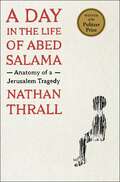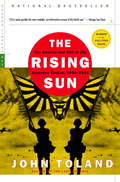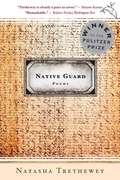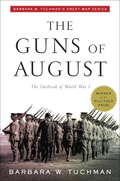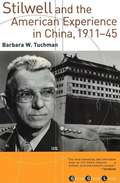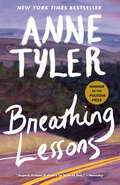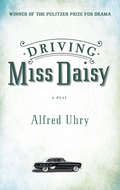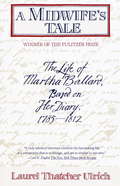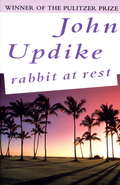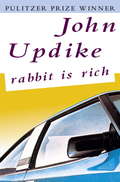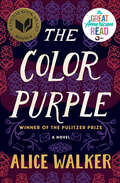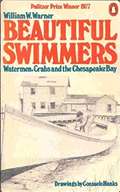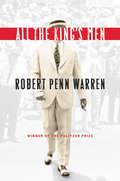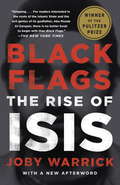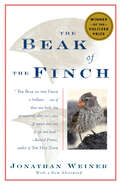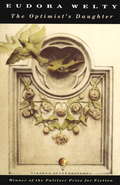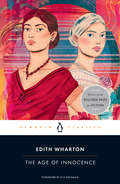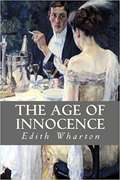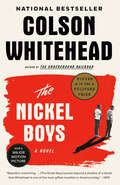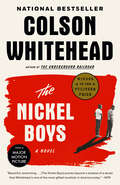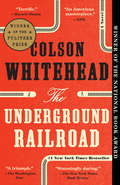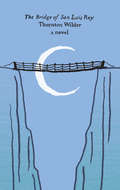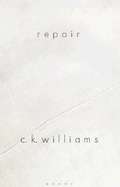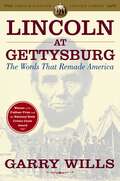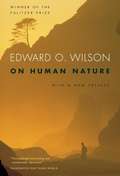Special Collections
Pulitzer Prize Award Winners
Description: Bookshare is pleased to offer the following titles, winners of the Pulitzer Prize Award. Note: Some drama winners are available and are listed under Fiction awards. #award
- Table View
- List View
A Day in the Life of Abed Salama
by Nathan ThrallImmersive and gripping, an intimate story of a deadly accident outside Jerusalem that unravels a tangle of lives, loves, enmities, and histories over the course of one revealing, heartbreaking day.
Five-year-old Milad Salama is excited for a school trip to a theme park on the outskirts of Jerusalem. On the way, his bus collides with a semitrailer. His father, Abed, gets word of the crash and rushes to the site. The scene is chaos—the children have been taken to different hospitals in Jerusalem and the West Bank; some are missing, others cannot be identified. Abed sets off on an odyssey to learn Milad’s fate. It is every parent’s worst nightmare, but for Abed it is compounded by the maze of physical, emotional, and bureaucratic obstacles he must navigate because he is Palestinian. He is on the wrong side of the separation wall, holds the wrong ID to pass the military checkpoints, and has the wrong papers to enter the city of Jerusalem. Abed’s quest to find Milad is interwoven with the stories of a cast of Jewish and Palestinian characters whose lives and histories unexpectedly converge.
In A Day in the Life of Abed Salama, Nathan Thrall—hailed for his “severe allergy to conventional wisdom” (Time)—offers an indelibly human portrait of the struggle over Israel/Palestine and a new understanding of the tragic history and reality of one of the most contested places on earth.
The Rising Sun
by John TolandThis history of World War II chronicles the dramatic rise and fall of the Japanese empire, from the invasion of Manchuria and China to the atomic bombing of Hiroshima and Nagasaki. Told from the Japanese perspective, The Rising Sun is, in the author's words, "a factual saga of people caught up in the flood of the most overwhelming war of mankind, told as it happened--muddled, ennobling, disgraceful, frustrating, full of paradox."In weaving together the historical facts and human drama leading up to and culminating in the war in the Pacific, Toland crafts a riveting and unbiased narrative history. In his Foreword, Toland says that if we are to draw any conclusion from The Rising Sun, it is "that there are no simple lessons in history, that it is human nature that repeats itself, not history."
Pulitzer Prize Winner
Native Guard
by Natasha TretheweyWinner of the 2007 Pulitzer Prize for poetry, Natasha Trethewey's elegiac Native Guard is a deeply personal volume that brings together two legacies of the Deep South.The title of the collection refers to the Mississippi Native Guards, a black regiment whose role in the Civil War has been largely overlooked by history. As a child in Gulfport, Mississippi, in the 1960s, Trethewey could gaze across the water to the fort on Ship Island where Confederate captives once were guarded by black soldiers serving the Union cause. The racial legacy of the South touched Trethewey's life on a much more immediate level, too. Many of the poems in Native Guard pay loving tribute to her mother, whose marriage to a white man was illegal in her native Mississippi in the 1960s. Years after her mother's tragic death, Trethewey reclaims her memory, just as she reclaims the voices of the black soldiers whose service has been all but forgotten.Included in this beautiful new edition of Native Guard is an audio CD of the poems read by the author -- a lovely gift for anyone who loves poetry that speaks to the heart and mind.
The Guns of August
by Barbara W. TuchmanIn this landmark account, renowned historian Barbara W. Tuchman re-creates the first month of World War I: thirty days in the summer of 1914 that determined the course of the conflict, the century, and ultimately our present world. Beginning with the funeral of Edward VII, Tuchman traces each step that led to the inevitable clash. And inevitable it was, with all sides plotting their war for a generation. Dizzyingly comprehensive and spectacularly portrayed with her famous talent for evoking the characters of the war’s key players, Tuchman’s magnum opus is a classic for the ages.
Pulitzer Prize Winner
Stilwell and the American Experience in China, 1911-45
by Barbara W. TuchmanBarbara W. Tuchman uses the life of Joseph Stilwell, the military attache to China in 1935-39 and commander of United States forces and allied chief of staff to Chiang Kai-shek in 1942-44, to explore the history of China from the revolution of 1911 to the turmoil of World War II, when China's Nationalist government faced attack from Japanese invaders and Communist insurgents. Her story is an account of both American relations with China and the experiences of one of our men on the ground. In the cantankerous but level-headed "Vinegar Joe," Tuchman found a subject who allowed her to perform, in the words of The National Review, "one of the historian's most envied magic acts: conjoining a fine biography of a man with a fascinating epic story."
Pulitzer Prize Winner
Breathing Lessons
by Anne TylerWINNER OF THE PULITZER PRIZE • NEW YORK TIMES BESTSELLER • Evoking Jane Austen, Emma Straub, and other masters of the literary marriage, Breathing Lessons celebrates the small miracles and magic of truly knowing someone.Unfolding over the course of a single emotionally fraught day, this stunning novel encompasses a lifetime of dreams, regrets and reckonings—and is oftern regarded as Tyler's seminal work. Maggie and Ira Moran are on a road trip from Baltimore, Maryland to Deer Lick, Pennsylvania to attend the funeral of a friend. Along the way, they reflect on the state of their marriage, its trials and its triumphs—through their quarrels, their routines, and their ability to tolerate each other&’s faults with patience and affection. Where Maggie is quirky, lovable and mischievous, Ira is practical, methodical and mired in reason. What begins as a day trip becomes a revelatory and unexpected journey, as Ira and Maggie rediscover the strength of their bond and the joy of having somebody with whom to share the ride, bumps and all.&“More powerful and moving than anything [Tyler] has done.&” —Los Angeles Times
Driving Miss Daisy
by Alfred UhryRacial tensions are delicately explored when a warm friendship evolves between an elderly Jewish woman and her black chauffeur. Winner of a 1988 Pulitzer Prize, and Academy Awards for Best Picture and Best Adapted Screenplay.
A Midwife's Tale
by Laurel Thatcher UlrichPULITZER PRIZE WINNER • Drawing on the diaries of one woman in eighteenth-century Maine, "A truly talented historian unravels the fascinating life of a community that is so foreign, and yet so similar to our own" (The New York Times Book Review).Between 1785 and 1812 a midwife and healer named Martha Ballard kept a diary that recorded her arduous work (in 27 years she attended 816 births) as well as her domestic life in Hallowell, Maine. On the basis of that diary, Laurel Thatcher Ulrich gives us an intimate and densely imagined portrait, not only of the industrious and reticent Martha Ballard but of her society. At once lively and impeccably scholarly, A Midwife's Tale is a triumph of history on a human scale.
Rabbit at Rest
by John UpdikeWinner of the Pulitzer Prize, the Howells Medal, and the National Book Critics Circle Award In John Updike's fourth and final novel about Harry "Rabbit" Angstrom, the hero has acquired a Florida condo, a second grandchild, and a troubled, overworked heart. His son, Nelson, is behaving erratically; his daughter-in-law, Pru, is sending him mixed signals; and his wife, Janice, decides in midlife to return to the world of work. As, through the year of 1989, Reagan's debt-ridden, AIDS-plagued America yields to that of the first George Bush, Rabbit explores the bleak terrain of late middle age, looking for reasons to live and opportunities to make peace with a remorselessly accumulating past.
Rabbit Is Rich
by John UpdikeThe hero of John Updike's Rabbit, Run, ten years after the events of Rabbit Redux, has come to enjoy considerable prosperity as the chief sales representative of Springer Motors, a Toyota agency in Brewer, Pennsylvania. The time is 1979: Skylab is falling, gas lines are lengthening, and double-digit inflation coincides with a deflation of national self-confidence. Nevertheless, Harry "Rabbit" Angstrom feels in good shape, ready to enjoy life at last--until his wayward son, Nelson, returns from the West, and the image of an old love pays a visit to the lot. New characters and old populate these scenes from Rabbit's middle age as he continues to pursue, in his zigzagging fashion, the rainbow of happiness.
Winner of the Pulitzer Prize, the National Book Award, and the National Book Critics Circle Award
The Color Purple
by Alice WalkerThe Pulitzer Prize– and National Book Award–winning novel is now a new, boldly reimagined film from producers Oprah Winfrey and Steven Spielberg, starring Taraji P. Henson, Danielle Brooks, and Fantasia Barrino.A PBS Great American Read Top 100 Pick Celie has grown up poor in rural Georgia, despised by the society around her and abused by her own family. She strives to protect her sister, Nettie, from a similar fate, and while Nettie escapes to a new life as a missionary in Africa, Celie is left behind without her best friend and confidante, married off to an older suitor, and sentenced to a life alone with a harsh and brutal husband. In an attempt to transcend a life that often seems too much to bear, Celie begins writing letters directly to God. The letters, spanning 20 years, record a journey of self-discovery and empowerment guided by the light of a few strong women. She meets Shug Avery, her husband&’s mistress and a jazz singer with a zest for life, and her stepson&’s wife, Sofia, who challenges her to fight for independence. And though the many letters from Celie&’s sister are hidden by her husband, Nettie&’s unwavering support will prove to be the most breathtaking of all.The Color Purple has sold more than five million copies, inspired an Academy Award-nominated film starring Oprah Winfrey and directed by Steven Spielberg, and been adapted into a Tony-winning Broadway musical. Lauded as a literary masterpiece, this is the groundbreaking novel that placed Walker &“in the company of Faulkner&” (The Nation), and remains a wrenching—yet intensely uplifting—experience for new generations of readers.This ebook features a new introduction written by the author on the 25th anniversary of publication, and an illustrated biography of Alice Walker including rare photos from the author&’s personal collection. The Color Purple is the 1st book in the Color Purple Collection, which also includes The Temple of My Familiar and Possessing the Secret of Joy.
Beautiful Swimmers
by William W. WarnerCombines a natural history of the Atlantic blue crab with an historical and ecological study of Chesapeake Bay and a chronicle of the commercial crabber's year.
Pulitzer Prize winner
All the King's Men
by Robert Penn WarrenWinner of the Pulitzer Prize, Robert Penn Warren's tale of ambition and power set in the Depression-era South is widely considered the finest novel ever written about American politics.All the King's Men traces the rise and fall of demagogue Willie Stark, a fictional character loosely based on Governor Huey "Kingfish" Long of Louisiana. Stark begins his political career as an idealistic man of the people but soon becomes corrupted by success and caught between dreams of service and an insatiable lust for power, culminating in a novel that Sinclair Lewis pronounced, on the book's release in 1946, "one of our few national galleries of character."
Black Flags
by Joby WarrickWINNER OF THE 2016 PULITZER PRIZE FOR GENERAL NONFICTION"A Best Book of 2015"--The New York Times, The Washington Post, People Magazine, San Francisco Chronicle, Kansas City Star, and Kirkus ReviewsIn a thrilling dramatic narrative, awarded the 2016 Pulitzer Prize for General Nonfiction, Joby Warrick traces how the strain of militant Islam behind ISIS first arose in a remote Jordanian prison and spread with the unwitting aid of two American presidents. When the government of Jordan granted amnesty to a group of political prisoners in 1999, it little realized that among them was Abu Musab al-Zarqawi, a terrorist mastermind and soon the architect of an Islamist movement bent on dominating the Middle East. In Black Flags, an unprecedented character-driven account of the rise of ISIS, Pulitzer Prize-winning reporter Joby Warrick shows how the zeal of this one man and the strategic mistakes of Presidents Bush and Obama led to the banner of ISIS being raised over huge swaths of Syria and Iraq. Zarqawi began by directing terror attacks from a base in northern Iraq, but it was the American invasion in 2003 that catapulted him to the head of a vast insurgency. By falsely identifying him as the link between Saddam and bin Laden, U.S. officials inadvertently spurred like-minded radicals to rally to his cause. Their wave of brutal beheadings and suicide bombings persisted until American and Jordanian intelligence discovered clues that led to a lethal airstrike on Zarqawi's hideout in 2006. His movement, however, endured. First calling themselves al-Qaeda in Iraq, then Islamic State of Iraq and Syria, or ISIS, his followers sought refuge in unstable, ungoverned pockets on the Iraq-Syria border. When the Syrian civil war broke out in 2011, and as the U.S. largely stood by, ISIS seized its chance to pursue Zarqawi's dream of an ultra-conservative Islamic caliphate. Drawing on unique high-level access to CIA and Jordanian sources, Warrick weaves gripping, moment-by-moment operational details with the perspectives of diplomats and spies, generals and heads of state, many of whom foresaw a menace worse than al Qaeda and tried desperately to stop it. Black Flags is a brilliant and definitive history that reveals the long arc of today's most dangerous extremist threat.From the Hardcover edition.
The Beak of the Finch
by Jonathan WeinerPULITZER PRIZE WINNER • A dramatic story of groundbreaking scientific research of Darwin's discovery of evolution that "spark[s] not just the intellect, but the imagination" (Washington Post Book World). &“Admirable and much-needed.... Weiner&’s triumph is to reveal how evolution and science work, and to let them speak clearly for themselves.&”—The New York Times Book ReviewOn a desert island in the heart of the Galapagos archipelago, where Darwin received his first inklings of the theory of evolution, two scientists, Peter and Rosemary Grant, have spent twenty years proving that Darwin did not know the strength of his own theory. For among the finches of Daphne Major, natural selection is neither rare nor slow: it is taking place by the hour, and we can watch.In this remarkable story, Jonathan Weiner follows these scientists as they watch Darwin's finches and come up with a new understanding of life itself. The Beak of the Finch is an elegantly written and compelling masterpiece of theory and explication in the tradition of Stephen Jay Gould.
The Optimist's Daughter
by Eudora WeltyA young woman who has left the South, returns to New Orleans several years later when her father is dying. After his death, she and her young stepmother go back to the small Mississippi town where she grew up. Alone in the old house, Laurel finally comes to an understanding of the past and herself. Copyright © Libri GmbH. All rights reserved.
The Age of Innocence
by Edith WhartonNewland Archer saw little to envy in the marriages of his friends, yet he prided himself that in May Welland he had found the companion of his needs--tender and impressionable, with equal purity of mind and manners. Enter Countess Olenska, a woman of quick wit sharpened by experience, not afraid to flout convention and determined to find freedom in divorce. Against his judgment, Newland is drawn to the socially ostracized Ellen Olenska. He knows that in sweet-tempered May, he can expect stability and the steadying comfort of duty. But what new worlds could he discover with Ellen?
Pulitzer Prize Winner
The Age of Innocence
by Edith WhartonEdith Wharton (1862-1937) wrote carefully structured fiction that probed the psychological and social elements guiding the behavior of her characters. Her portrayals of upper-class New Yorkers were unrivaled.
At the heart of the story are three people whose entangled lives are deeply affected by the tyrannical and rigid requirements of high society. Newland Archer, a restrained young attorney, is engaged to the lovely May Welland but falls in love with May's beautiful and unconventional cousin, Countess Ellen Olenska. Despite his fear of a dull marriage to May, Archer goes through with the ceremony -- persuaded by his own sense of honor, family, and societal pressures. He continues to see Ellen after the marriage, but his dreams of living a passionate life ultimately cease.The novel's lucid and penetrating prose style, vivid characterization, and its rendering of the social history of an era have long made it a favorite with readers and critics alike.
Pulitzer Prize Winner
The Nickel Boys
by Colson WhiteheadIn this bravura follow-up to the Pulitzer Prize and National Book Award-winning #1 New York Times bestseller The Underground Railroad, Colson Whitehead brilliantly dramatizes another strand of history through the story of two boys sentenced to a hellish reform school in Jim Crow-era Florida.
As the Civil Rights movement begins to reach the black enclave of Frenchtown in segregated Tallahassee, Florida, Elwood Curtis takes the words of Dr. Martin Luther King to heart: he is "as good as anyone." Abandoned by his parents, but kept on the straight and narrow by his grandmother, Elwood is about to enroll in the local black college.
But for a black boy in the American South in the early 1960s, one innocent mistake is enough to destroy the future. Elwood is sentenced to a juvenile reformatory called The Nickel Academy, whose mission statement says it provides "physical, intellectual and moral training" so the delinquent boys in their charge can become "honorable and honest men."
In reality, The Nickel Academy is a grotesque chamber of horrors, where the sadistic staff beats and sexually abuses the students, corrupt officials and locals steal food and supplies, and any boy who resists is likely to disappear "out back." Stunned to find himself in such a vicious environment, Elwood tries to hold on to Dr. King's ringing assertion "throw us in jail and we will still love you."
His friend Turner thinks Elwood is worse than naive, that the world is crooked and the only way to survive is to scheme and avoid trouble. The tension between Elwood's ideals and Turner's skepticism leads to a decision whose repercussions will echo down the decades. Formed in the crucible of the evils Jim Crow wrought, the boys' fates will be determined by what they endured at The Nickel Academy.
Based on the true story of a reform school in Florida that operated for one hundred and eleven years and warped the lives of thousands of children, The Nickel Boys is a devastating, driven narrative that showcases a great American novelist writing at the height of his powers.
A New York Times Bestseller
The Nickel Boys (Winner 2020 Pulitzer Prize for Fiction)
by Colson WhiteheadPULITZER PRIZE WINNER • NATIONAL BESTSELLER • This follow-up to The Underground Railroad brilliantly dramatizes another strand of American history through the story of two boys unjustly sentenced to a hellish reform school in Jim Crow-era Florida. • "One of the most gifted novelists in America today." —NPR When Elwood Curtis, a black boy growing up in 1960s Tallahassee, is unfairly sentenced to a juvenile reformatory called the Nickel Academy, he finds himself trapped in a grotesque chamber of horrors. Elwood&’s only salvation is his friendship with fellow &“delinquent&” Turner, which deepens despite Turner&’s conviction that Elwood is hopelessly naive, that the world is crooked, and that the only way to survive is to scheme and avoid trouble. As life at the Academy becomes ever more perilous, the tension between Elwood&’s ideals and Turner&’s skepticism leads to a decision whose repercussions will echo down the decades. Based on the real story of a reform school that operated for 111 years and warped the lives of thousands of children, The Nickel Boys is a devastating, driven narrative that showcases a great American novelist writing at the height of his powers and &“should further cement Whitehead as one of his generation's best" (Entertainment Weekly). Look for Colson Whitehead&’s new novel, Crook Manifesto, coming soon!
The Underground Railroad (Pulitzer Prize Winner) (National Book Award Winner) (Oprah's Book Club)
by Colson Whitehead#1 NEW YORK TIMES BESTSELLER • PULITZER PRIZE WINNER • NATIONAL BOOK AWARD WINNER • "An American masterpiece" (NPR) that chronicles a young slave's adventures as she makes a desperate bid for freedom in the antebellum South. • The basis for the acclaimed original Amazon Prime Video series directed by Barry Jenkins.Cora is a slave on a cotton plantation in Georgia. An outcast even among her fellow Africans, she is on the cusp of womanhood—where greater pain awaits. And so when Caesar, a slave who has recently arrived from Virginia, urges her to join him on the Underground Railroad, she seizes the opportunity and escapes with him.In Colson Whitehead's ingenious conception, the Underground Railroad is no mere metaphor: engineers and conductors operate a secret network of actual tracks and tunnels beneath the Southern soil. Cora embarks on a harrowing flight from one state to the next, encountering, like Gulliver, strange yet familiar iterations of her own world at each stop. As Whitehead brilliantly re-creates the terrors of the antebellum era, he weaves in the saga of our nation, from the brutal abduction of Africans to the unfulfilled promises of the present day. The Underground Railroad is both the gripping tale of one woman's will to escape the horrors of bondage—and a powerful meditation on the history we all share.Look for Colson Whitehead&’s new novel, Crook Manifesto, coming soon!
The Bridge of San Luis Rey
by Thornton Wilder"On Friday noon, July the twentieth, 1714, the finest bridge in all Peru broke and precipitated five travelers into the gulf below." With this celebrated sentence, Thornton Wilder begins The Bridge of San Luis Rey, one of the towering achievements in American fiction and a novel read throughout the world.By chance, a monk witnesses the tragedy. Brother Juniper seeks to prove that it was divine intervention rather than chance that led to the deaths of those who perished in the tragedy. His study leads to his own death -- and to the author's timeless investigation into the nature of love and the meaning of the human condition.The Bridge of San Luis Rey is now reissued in this handsome hardcover edition featuring a new foreword by Russell Banks. Tappan Wilder has written an engaging and thought-provoking afterword, which includes unpublished notes for the Pulitzer Prize-winning novel, illuminating photographs, and other remarkable documentary material. Granville Hicks's insightful comment about Wilder suggests an inveterate truth: "As a craftsman he is second to none, and there are few who have looked deeper into the human heart."
Repair
by C. K. WilliamsRepair is body work in C. K. Williams's sensual poems, but it is also an imaginative treatment of the consternations that interrupt life's easy narrative. National Book Critics Circle Award-winner Williams keeps the self in repair despite love, death, social disorder, and the secrets that separate and join intimates. These forty poems experiment with form but maintain what Alan Williamson has heralded Williams for having so steadily developed from French influences: "the poetry of the sentence".
Pulitzer Prize Winner
Lincoln at Gettysburg
by Garry WillsThe power of words has rarely been given a more compelling demonstration than in the Gettysburg Address. Lincoln was asked to memorialize the gruesome battle. Instead, he gave the whole nation "a new birth of freedom" in the space of a mere 272 words. His entire life and previous training, and his deep political experience went into this, his revolutionary masterpiece.By examining both the address and Lincoln in their historical moment and cultural frame, Wills breathes new life into words we thought we knew, and reveals much about a president so mythologized but often misunderstood. Wills shows how Lincoln came to change the world and to effect an intellectual revolution, how his words had to and did complete the work of the guns, and how Lincoln wove a spell that has not yet been broken.
On Human Nature
by Edward O. WilsonNo one who cares about the human future can afford to ignore Edward O. Wilson's book. On Human Nature begins a new phase in the most important intellectual controversy of this generation: Is human behavior controlled by the species' biological heritage? Does this heritage limit human destiny?
With characteristic pungency and simplicity of style, the author of Sociobiology challenges old prejudices and current misconceptions about the nature-nurture debate. He shows how...evolution has left its traces on the most distinctively human activities, how patterns of generosity, self-sacrifice, and worship, as well as sexuality and aggression, reveal their deep roots in the life histories of primate bands that hunted big game in the last Ice Age. His goal is nothing less than the completion of the Darwinian revolution by bringing biological thought into the center of the social sciences and the humanities.
Wilson presents a philosophy that cuts across the usual categories of conservative, liberal, or radical thought. In systematically applying the modern theory of natural selection to human society, he arrives at conclusions far removed from the social Darwinist legacy of the last century. Sociobiological theory, he shows, is compatible with a broadly humane and egalitarian outlook. Human diversity is to be treasured, not merely tolerated, he argues. Discrimination against ethnic groups, homosexuals, and women is based on a complete misunderstanding of biological fact.
But biological facts can never take the place of ethical choices. Once we understand our human nature, we must choose how "human" in the fullest, biological sense, we wish to remain. We cannot make this choice with the aid of external guides or absolute ethical principles because our very concept of right and wrong is wholly rooted in our own biological past. This paradox is fundamental to the evolution of consciousness in any species; there is no formula for escaping it. To understand its essence is to grasp the full predicament of the human condition.
Pulitzer Prize Winner
